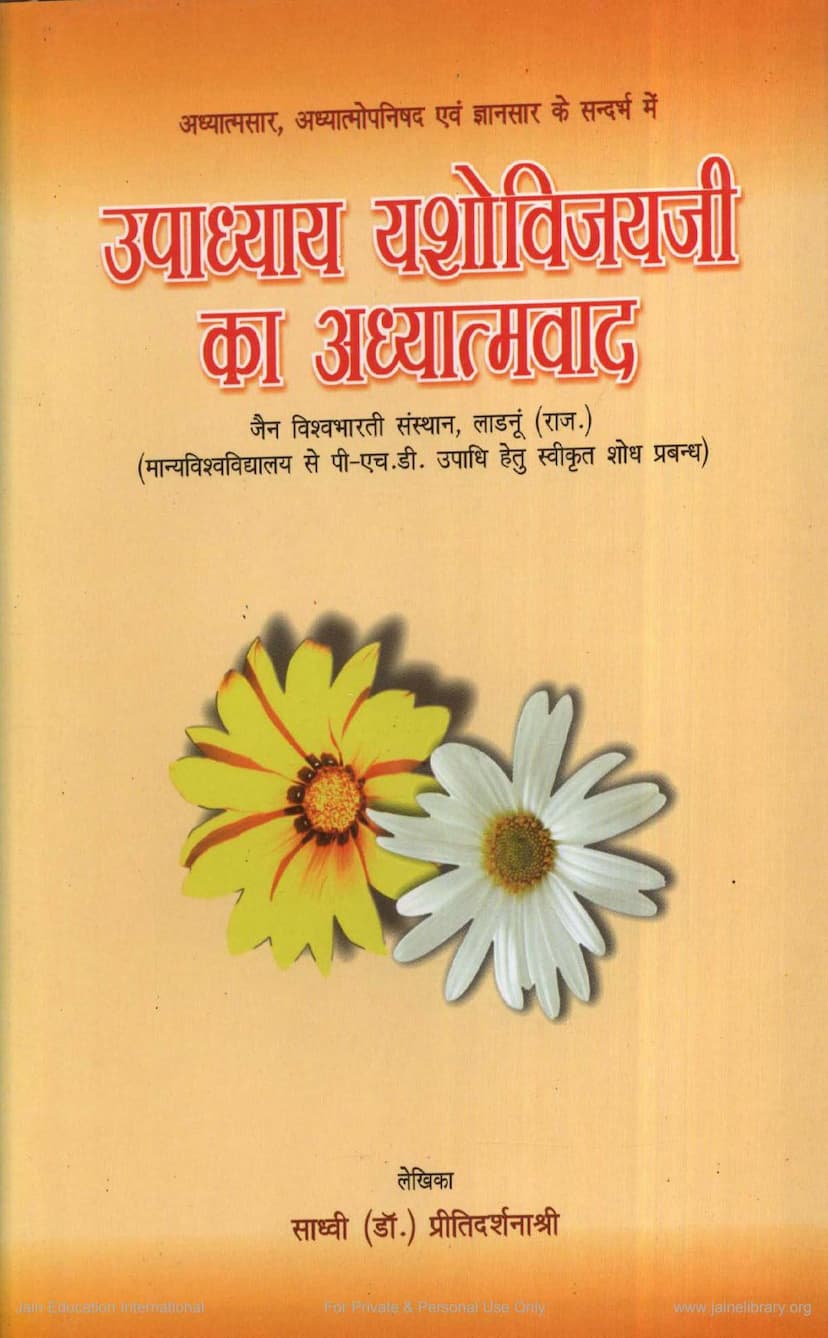Yashovijayji Ka Adhyatmavada
Added to library: September 2, 2025

Summary
This document is a comprehensive summary of the doctoral dissertation titled "Yashovijayji ka Adhyatmavada" (The Spiritualism of Upadhyay Yashovijayji) by Sadhvi (Dr.) Preetidarshanashreeji. Published by Shri Rajendra Suri Jain Shodh Sansthan, Ujjain, the work delves into the spiritual philosophy of Upadhyay Yashovijayji, a prominent Jain Acharya from the 17th century, with a specific focus on his treatises: Adhyatmasar, Adhyatmopanishad, and Gyanasara.
The dissertation, approved for a Ph.D. by Jain Vishva Bharati Institute, Ladnun, aims to elucidate the spiritual concepts of Upadhyay Yashovijayji, particularly in relation to these three influential texts.
The document also provides a detailed overview of the book's structure, including the ten chapters that explore various facets of Upadhyay Yashovijayji's spiritualism. These include:
- Chapter 1: The personality and literary works of Upadhyay Yashovijayji, covering his life, guru tradition, education, and contributions.
- Chapter 2: The meaning and nature of spiritualism, including its definition by Yashovijayji, its essence from different perspectives, its qualified recipients, and its various levels. It also discusses the distinction between religion and spirituality and emphasizes the superiority of spiritual happiness over material pleasure.
- Chapter 3: The philosophical basis of spiritualism, focusing on the nature of the soul, its concepts, attributes, states of being, and the ultimate state of infinite attributes.
- Chapter 4: The interrelationship between the seeker (soul), the goal (supreme soul), and the path of spiritual practice, including Yashovijayji's interpretation of the fourfold yoga (Shastrayoga, Jnanayoga, Kriyayoga, and Samyayoga).
- Chapter 5: The practice of Jnanayoga, exploring different levels and types of knowledge, the difference between scriptural knowledge and self-realization, and the significance of anekanta (non-absolutism) in resolving conflicts.
- Chapter 6: The practice of Kriyayoga, emphasizing its necessity even with knowledge, and discussing the six essential daily duties (Shadavashyak) and the distinction between pure and impure actions.
- Chapter 7: The practice of Samyayoga, focusing on equanimity, the causes of disequilibrium, forms of attachment, desire-aversion, equanimity at different levels, and the coordination of various yogas.
- Chapter 8: The spiritual evolution of the soul, outlining the concept of the three types of souls (Bahir-atma, Antar-atma, and Param-atma) and the fourteen stages of spiritual development (Gunasthana).
- Chapter 9: The conclusion, which addresses the role of spiritualism in resolving modern global problems like consumerism, pollution, violence, and the need for spiritual guidance in political and social life.
The document also includes acknowledgments to the guiding figures and institutions, including the author's deep reverence for her gurus, Acharya Shrimad Vijay Rajendrasurishwarji M.S. and Acharya Shrimad Vijay Jayantansen Surishwarji M.S., as well as Sadhviratna Dadiji Shri Mahaprabhya Shri Ji M.S. It highlights the invaluable guidance of Dr. Sagarmal Jain, the research director.
The comprehensive bibliography lists the extensive range of Jain and other philosophical texts consulted, underscoring the depth of the research. The book itself is a significant contribution to the understanding of Jain spiritualism, particularly the profound teachings of Upadhyay Yashovijayji.